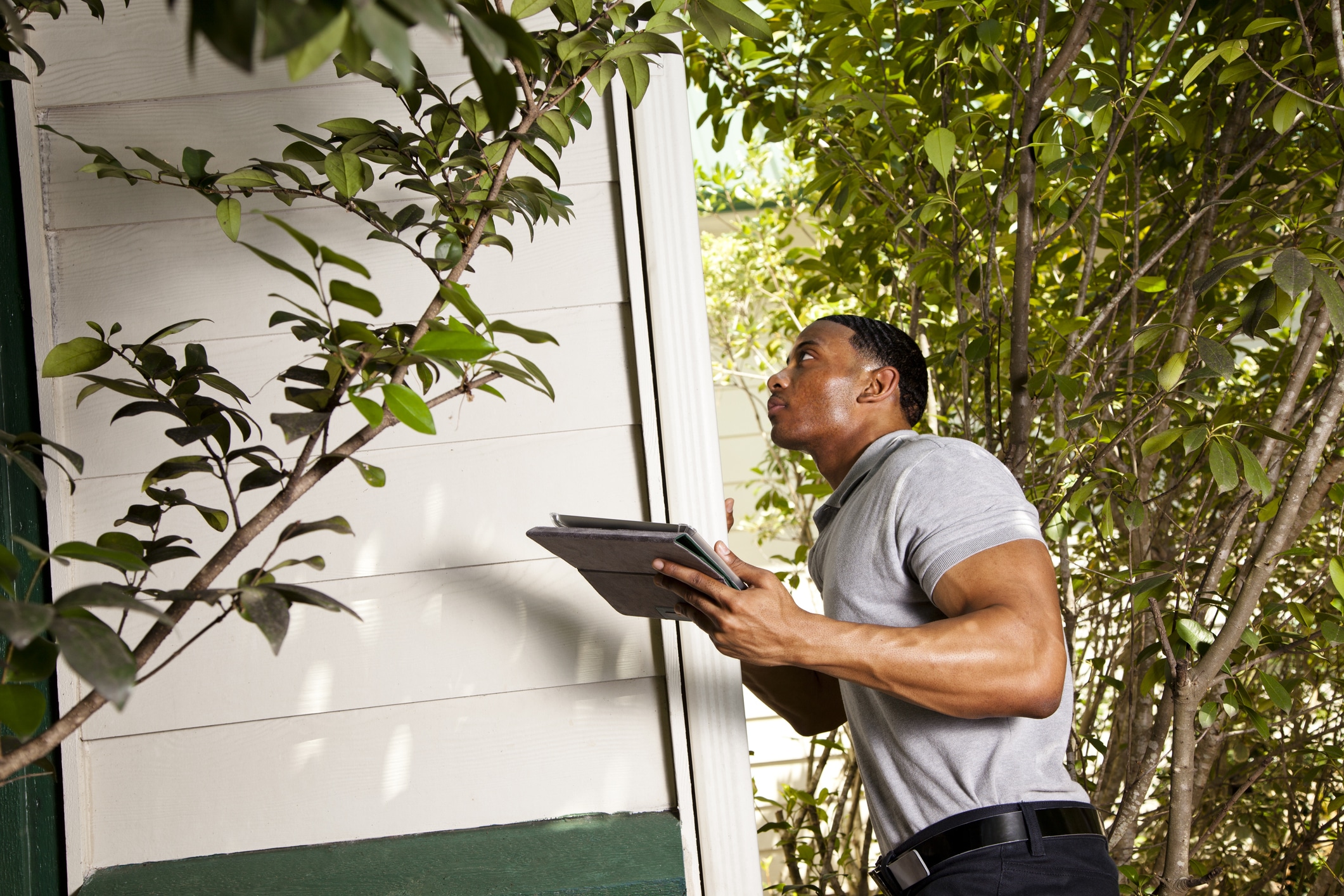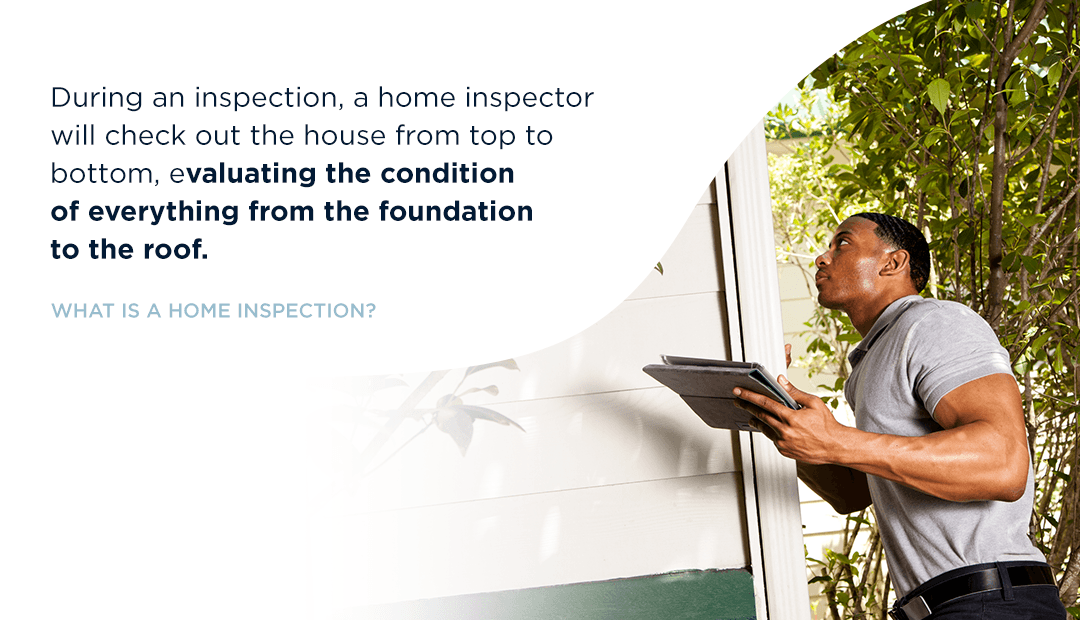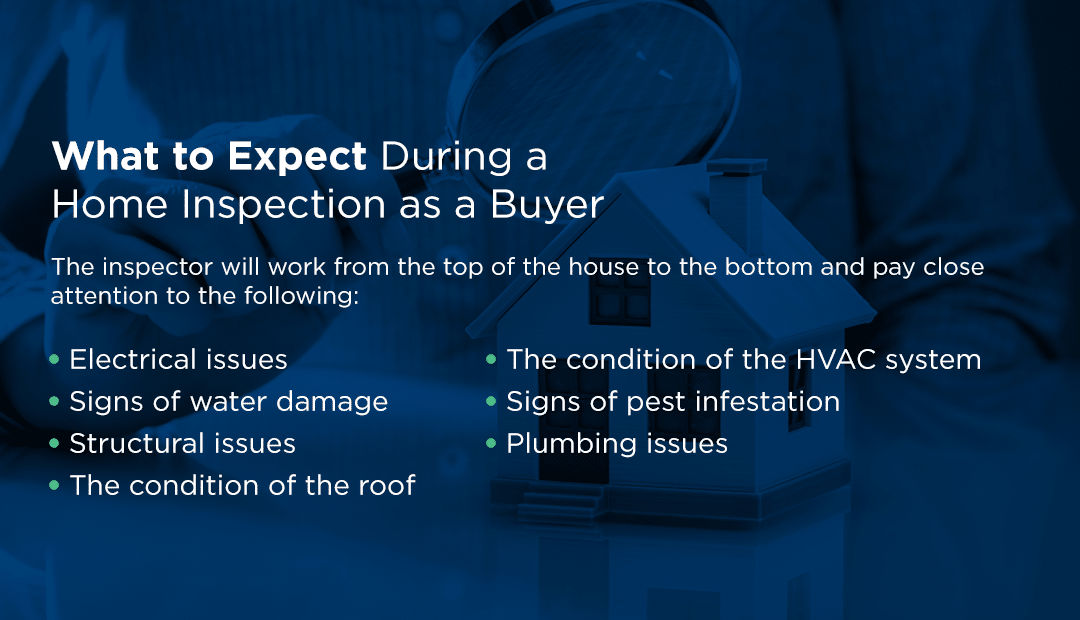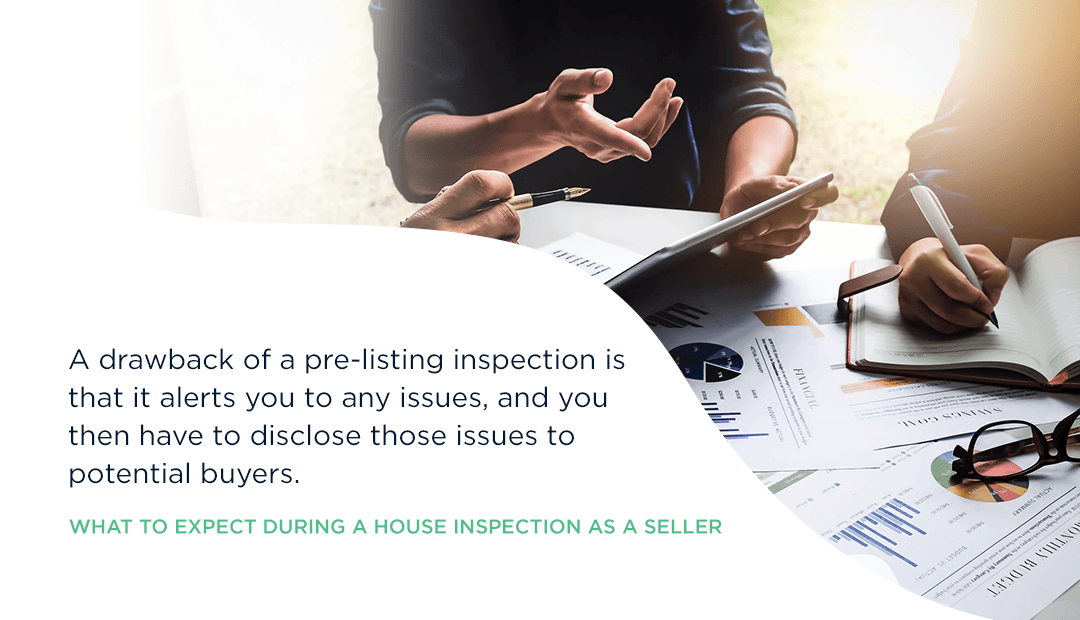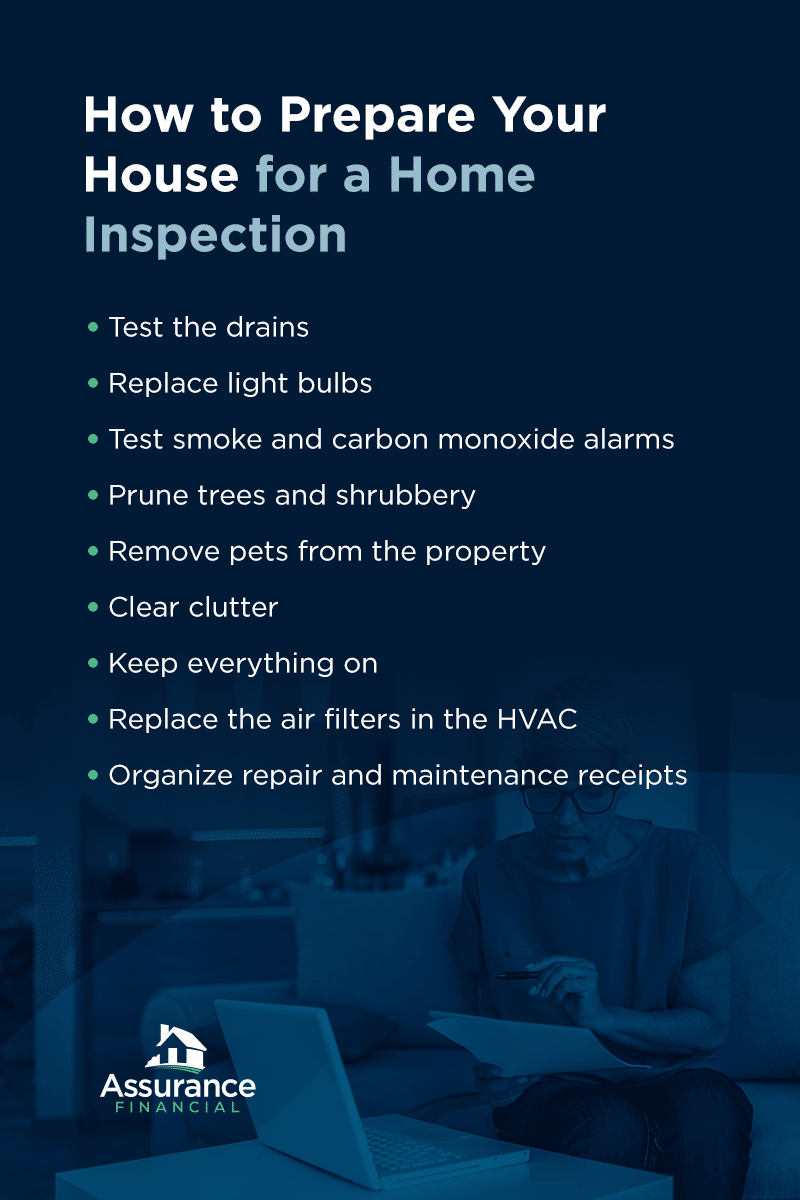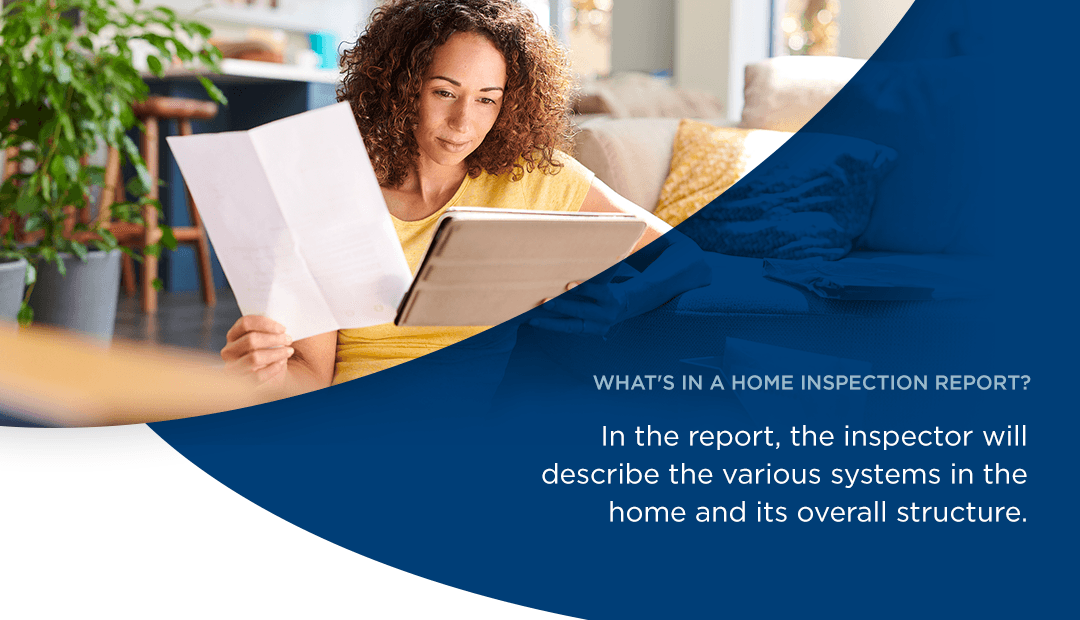You’ve recently visited a home, and it feels like the one. You put in an offer, the seller accepted it and now it’s time for the home inspection. Scheduling a home inspection is an essential part of the homebuying process. The inspection can clue you into any issues in the house that you might have missed and can protect you from buying a home that has many problems.
Even if everything about the home looked great when you toured it the first time, the inspection isn’t something you want to skip. You can use the information you get from the inspector to negotiate with the seller and to correct any concerns before you close on the property. Although many buyers schedule their own inspection, sellers can also set up a home inspection before they list their home. A pre-listing inspection can give a seller an idea of what should be fixed up before the house goes on the market.
Whether you are the buyer or seller, a home inspection can help you save money and time.
Table of Contents
- What is Home Inspection?
- When Should the Home Inspection Take Place?
- How to Hire a Home Inspector?
- What to Expect as a Buyer
- What to do During and After a Home Inspection
- What to Expect as a Seller
- How to Prepare
- What Sellers can do After
- Cost of a Home Inspection
- What’s in a Home Inspection Report?
- Apply Today
What Is a Home Inspection?
A home inspection is a non-invasive examination of the structure and systems of a home. During an inspection, a home inspector will check out the house from top to bottom, evaluating the condition of everything from the foundation to the roof. The inspection usually takes place with the buyer or seller present and often takes several hours to complete. How long the inspection takes depends on the size of the home and its overall condition. A larger house or a house that has many issues will usually require a longer inspection than a small home or a home that has few problems.
The home inspection often involves three parts, in which an inspector will:
- Identify issues in the home.
- Recommend ways to correct any issues.
- Take photos of the structures and systems in a home to include in the report.
One thing worth noting about a home inspection is that the issues uncovered are typically those that are visible. An inspector isn’t going to make holes in the walls of the home or tear up the flooring to look at the condition of the subfloor. They won’t try to look at pipes or wiring beneath the walls or floors, either. If it isn’t safe to evaluate or examine a particular area of the home, the inspector will also generally leave it. For example, although a roof inspection is usually part of the process, if the roof is too high to safely reach with a ladder, an inspector might examine it through a pair of binoculars, rather than going onto it.
While a home inspection will check most areas of the home, there are some things the inspector won’t evaluate. Usually, swimming pools, fireplaces and septic systems aren’t included in the home inspection. The inspector is also likely not to comment on the condition of the soil or ground underneath.
When Should the Home Inspection Take Place?
If a buyer is scheduling a home inspection, it usually occurs shortly after a seller has accepted the buyer’s offer and after both parties have signed a purchase agreement. Your real estate agent should include an inspection contingency clause in the agreement. The clause gives you the option of scheduling an inspection and outlines a time frame for it, such as up to seven days after the parties sign the purchase agreement.
The clause should also state that you have the option of backing out of the sale of the home if you and the seller can’t agree on negotiations or if the inspection turns up significant issues with the home.
When someone is selling their home, they might decide to schedule a pre-listing inspection. During a pre-listing inspection, the inspector will check the home for any issues and recommend changes the seller can make before putting their home on the market. After a pre-listing inspection, a seller can decide what improvements to make to increase the sale price of their home. They can also use the information in the report to set the price of the home.
How to Hire a Home Inspector
If you are in the process of buying a home, you get to choose the person who performs the inspection. Just as you might have shopped around for your real estate agent, it’s a good idea to shop around before you choose a home inspector. Your agent might have a list of recommended inspectors for you to work with, but it often pays to do your own research. You want to hire someone who is certified and who you can trust to give you an unbiased opinion. The inspectors your agent recommends might offer the agent a referral bonus, which means they aren’t exactly a neutral party.
You might want to ask friends or relatives who recently purchased a home in your area who they worked with for the inspection and if they’d recommend the inspector they used. An online search can tell you if others have had a positive experience with a particular inspector or if there are any complaints or concerns raised about them.
You can also ask the inspector to share a sample copy of the report they provide. That way, you can see how detailed the report might be and can get a sense of how well the inspector describes the issues with the property.
What to Expect During a Home Inspection as a Buyer
If a seller has accepted your offer for their home and has agreed to a home inspection contingency, set aside several hours on the day of the inspection to give the inspector time to do their job and to give yourself the opportunity to be present for as much of the process as possible. You don’t have to be at the home during the inspection, but being there is usually recommended. Walking through the property with the inspector can help you gain a better understanding of any issues and what they might mean for your safety and comfort if you end up buying the property.
Your real estate agent doesn’t have to be present during the inspection, but many choose to be there. If your agent is present, they are equipped to give you advice on how to negotiate with the sellers if there are any issues with the house that you want fixed before closing. The inspector will work from the top of the house to the bottom and pay close attention to the following:
- Electrical issues: The inspector will test the outlets in the home to verify they are grounded. They will also look at the circuit breaker and check to see that the wiring is up to code. If there are problems with the house’s electrical system, the inspector will describe them to you and will give you an idea of what you can do to correct them.
- Signs of water damage: The inspector will look for visible signs of water damage, such as a crack in the wall or signs of moisture in the basement. They will advise you on what you can do about any damage.
- Structural issues: During the inspection, the inspector will note potential structural concerns, such as signs of bowing on the facade of the house or signs that the floor is not as supported as it should be. They will also look at windows and doors to make sure they open and shut as they should and to confirm that they are straight.
- The condition of the roof: Many inspections require the inspector to get on the roof to check it out and make comments about its condition. The inspector notes the state of the roof and its perceived age and usually provides the buyer with an idea of what type of repair or maintenance it might need.
- The condition of the HVAC system: The inspector will test the HVAC system, whether it includes central air and heat or just heat. They will record the age of the system and its condition and will recommend changes or fixes as needed, such as replacing the air filter or considering upgrading an older system. During the inspection, they will turn on the heat or air conditioning to see how it performs.
- Signs of pest infestation: The inspector will also look for visible signs of pest damage. In many cases, a separate pest inspection, such as a termite inspection, is recommended as part of the home inspection process.
- Plumbing issues: While the inspector isn’t going to cut into walls to see if pipes are leaking, they will check the accessible areas of the house’s plumbing. They will test the water pressure coming from the faucets and will evaluate how well the drains function. They will also look at the pipes in the basement and make recommendations about the conditions of the piping and the location of shut-off valves.
The inspector is also likely to test any appliances that will be included in the sale of the home to make sure they function properly. For example, they may run a cycle in the washing machine and turn the dryer on. They will also look at the refrigerator and oven in the kitchen.
What to Do During a Home Inspection
During the home inspection, it’s a good idea to trail the inspector and take note of what they say. A trustworthy inspector will encourage you to ask questions throughout the process and will be happy to answer them for you. Although you might want to take notes and photos during the inspection, keep in mind that the inspector is also taking photos and will create a report to share with you at the end of the process.
What to Do After a Home Inspection
Once the home inspection is complete, it’s time for you to consider negotiating. You’ll usually get a copy of the inspection report within a few days. After reviewing it with your real estate agent, you can prepare a list of items you’d like the seller to correct before closing. You might also ask the seller to provide a credit to cover the cost of repairs you do yourself.
Usually, your agent will guide you toward requesting fixes for significant issues. If the furnace didn’t work during the inspection or if the inspector recommends tuning up the HVAC system, that is something worth asking the seller to do. Smaller concerns, such as installing a cover over a light switch or adding a smoke detector, might be things you decide to take on yourself.
What to Expect During a House Inspection as a Seller
If you are selling your home and decide to have a pre-listing inspection, you can expect an experience similar to the buyer’s. During the process, the home inspector will examine the home’s roof, plumbing, HVAC system, electrical system, structure and overall condition. They will provide a report that lets you know what they recommend doing.
A pre-listing inspection has its pros and cons. One advantage is it lets you know about any issues and gives you the chance to correct them, so you can list the house for a higher price. A pre-listing inspection can also save you time after you get an offer on the home, as you’ll have already fixed up many potential concerns.
A drawback of a pre-listing inspection is that it alerts you to any issues, and you then have to disclose those issues to potential buyers. Depending on the concerns, they might be enough to keep someone from making an offer on the home. Before putting your home on the market, talk to your real estate agent to see if they recommend a pre-listing inspection.
How to Prepare Your House for a Home Inspection
The seller is generally not present when a potential buyer arranges for a home inspection. While you aren’t expected to be there for the inspection, there are a few things you can do to the house in advance:
- Test the drains:Make sure sink and tub drains run clearly before the inspection so you don’t have to worry about them raising red flags for a buyer. If the drains are running slowly, you might want to snake them or otherwise clean them before the inspector arrives.
- Replace light bulbs: If lights don’t work, an inspector might wonder if there is an issue with the electrical system.
- Test smoke and carbon monoxide alarms: Non-functioning smoke or carbon monoxide alarms are a safety concern during an inspection. Test the alarms in the home and replace their batteries in advance.
- Prune trees and shrubbery: Trim any tree branches that extend over the roof of the house and prune back shrubbery. Improving the landscaping before the inspection reduces the chance of damage caused by fallen branches and also helps to keep rodents away from the home. Pruned trees and shrubs also help improve the curb appeal of the home, which can make it more attractive to potential buyers.
- Remove pets from the property: If you are still living in the house, clear everyone out before the inspector arrives, including your pets.
- Clear clutter: If you still have belongings in the home, either clear them out before the inspection or organize them so they aren’t blocking the inspector’s path. An inspector can only examine accessible areas and isn’t allowed to touch your belongings. If there are boxes in front of the circuit panel or near the HVAC system, the inspector might not be able to reach it to do their job correctly.
- Keep everything on:Keep appliances on and plugged in, even if the house is vacant. The inspector will need to test that things work and won’t be able to do so if, for example, the refrigerator has been unplugged for several weeks.
- Replace the air filters in the HVAC: Replacing the air filters in the HVAC system allows it to function at its best and most efficient when the inspector tests it.
- Organize repair and maintenance receipts: If you don’t provide the inspector or buyer with receipts or proof of maintenance, they may make their best guess about the age or condition of the systems in a home. Make the receipts and other proof of maintenance available to the buyer and inspector to avoid this.
What Sellers Can Do After a Home Inspection
After a home inspection, be prepared for the buyer to come to you with a list of things they’d like corrected before closing or a credit request so they can make the corrections themselves. Your real estate agent can be a helpful source at this point to guide you through the negotiation process. Keep in mind that some issues, such as code violations or structural issues, usually need to be corrected before closing. Other issues, such as a broken refrigerator or a missing light switch cover, usually don’t have to be repaired before the sale goes through.
At the very least, as the seller, you should be prepared to offer something to the buyer after the inspection. If the process turned up multiple issues, you’ll have to disclose them to any future buyers, should the current deal fall through. Accordingly, it might be worthwhile to be as flexible as possible and try to work with the buyer to come up with a solution that works for both of you.
Cost of a Home Inspection
The cost of a home inspection can vary based on the size of the home and its location. The bigger the home, the more the inspection will cost. The type of home also influences the cost of the inspection. A condo or apartment inspection will usually cost less than the inspection of a free-standing home. The average cost is a few hundred dollars.
Some inspections are more detailed and thorough than others, which also affects the price. For example, a buyer might decide to have a termite inspection and radon test as part of their overall home inspection, which will raise the price tag.
Usually, the buyer pays for the inspection, but there are cases when they might be able to get the seller to pay. If it’s a buyer’s market and the seller really wants to sell the home, a buyer might be able to negotiate the cost of the inspection into their offer. During a seller’s market, when there is a lot of demand for homes and not many available, a seller can easily refuse to pay for the inspection. They might be able to waive the home inspection contingency entirely, depending on how hot the market is.
What’s in a Home Inspection Report?
Within a week or so of the inspection, the buyer, seller and their respective real estate agents will receive a copy of the inspection report. The report will usually be a very detailed, multi-page document that explains what a home inspection does and doesn’t do and describes the condition of the home. The inspector also highlights the type of issues they discovered during the process and makes recommendations for correcting problems. The report will also contain photos of the areas of the home and of any potential issues in the house.
In the report, the inspector will describe the various systems in the home and its overall structure. They will record the age of certain appliances and systems or will estimate the age as best as they can based on the information available.
Take the First Step Toward Homeownership With Assurance Financial
If you are looking to buy your first home or are planning to sell your home and move into a newer or bigger house, the first thing to do is get pre-qualified for a mortgage. Starting your mortgage application early on lets you know how much house you can afford and whether you qualify for a loan or not. Apply today to get started on your homebuying journey.
Sources:
- https://www.nerdwallet.com/article/mortgages/home-inspection
- https://www.zillow.com/sellers-guide/pre-listing-home-inspection/
- https://www.realtor.com/advice/sell/why-get-a-home-inspection-before-putting-your-home-on-the-market/
- https://www.consumerreports.org/home-inspections/how-to-choose-a-home-inspector/
- https://www.quickenloans.com/learn/what-you-need-to-know-before-hiring-a-home-inspector
- https://www.investopedia.com/articles/personal-finance/102913/contingency-clauses-home-purchase-contracts.asp
- http://www.homebuyinginstitute.com/mortgage/when-does-the-home-inspection-occu
- https://www.homeadvisor.com/cost/inspectors-and-appraisers/hire-a-home-inspector
- https://www.homeinspector.org/Buyers-And-Owners/Homebuyers-Guide/FAQs-about-Home-Inspection
- https://www.nerdwallet.com/blog/mortgages/home-inspection-dos-donts-homebuyers/
- https://www.homelight.com/blog/how-home-inspection-works/
- https://www.homelight.com/blog/home-inspection-tips/
- https://themortgagereports.com/37715/home-inspection-checklist-what-to-expect-on-inspection-day
- https://www.houselogic.com/buy/how-to-buy-step-by-step/home-inspection-what-to-expect/
- https://www.parealtors.org/home-inspection-specifications/
- https://www.thebalance.com/getting-through-the-home-inspection-1797764
- https://www.parealtors.org/waiving-inspection-contingencies-in-a-sellers-market/
- https://www.zillow.com/sellers-guide/bad-home-inspection-for-sellers/
- https://www.realtor.com/advice/sell/handle-repair-requests/
- https://assurancemortgage.com/apply/
- https://assurancemortgage.com/why-get-pre-qualified-before-looking-for-home/
- https://assurancemortgage.com/what-are-closing-costs/
- https://assurancemortgage.com/five-questions-to-ask-before-buying-a-home/
- https://assurancemortgage.com/calculators/how-much-can-i-afford/

